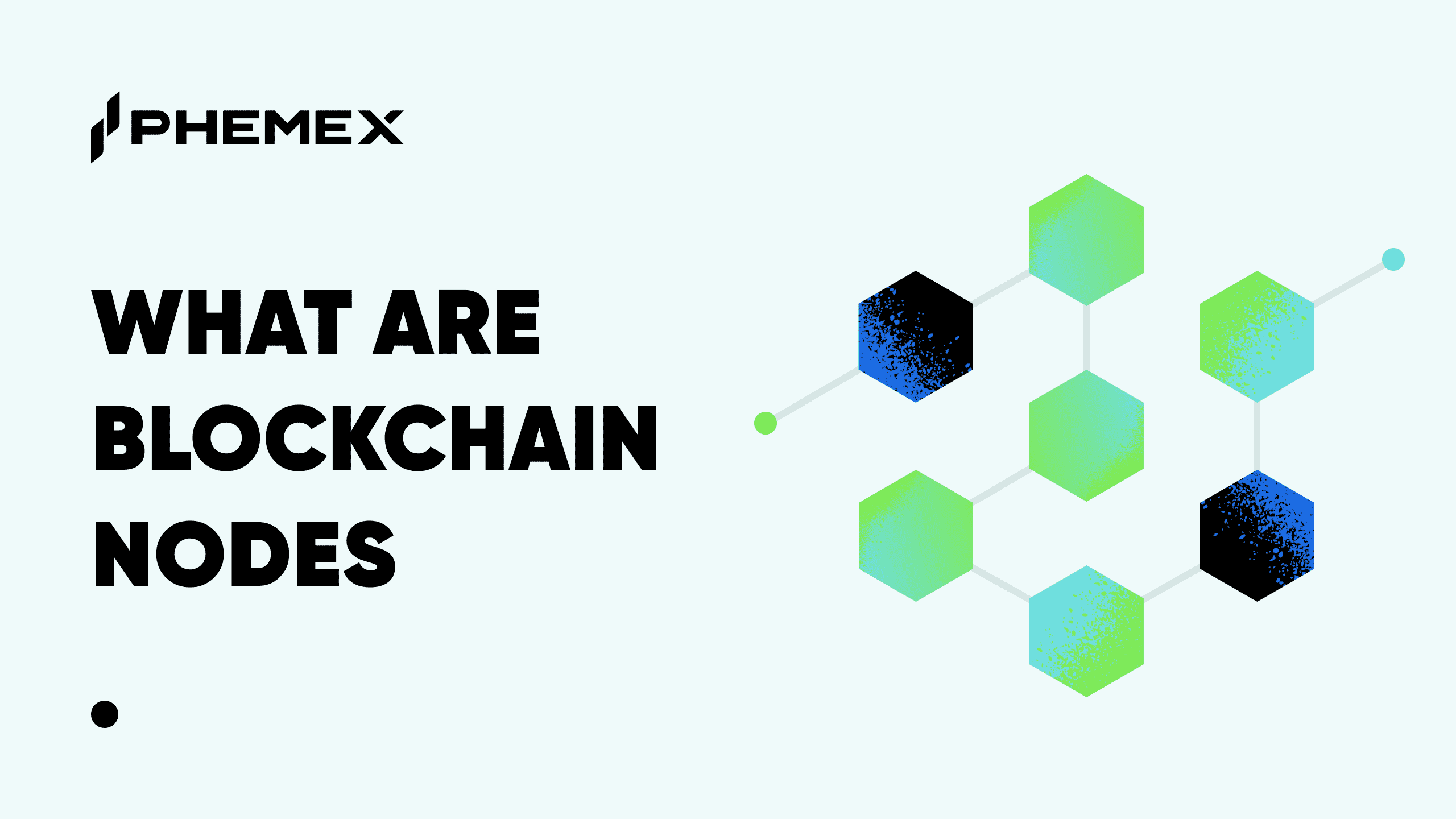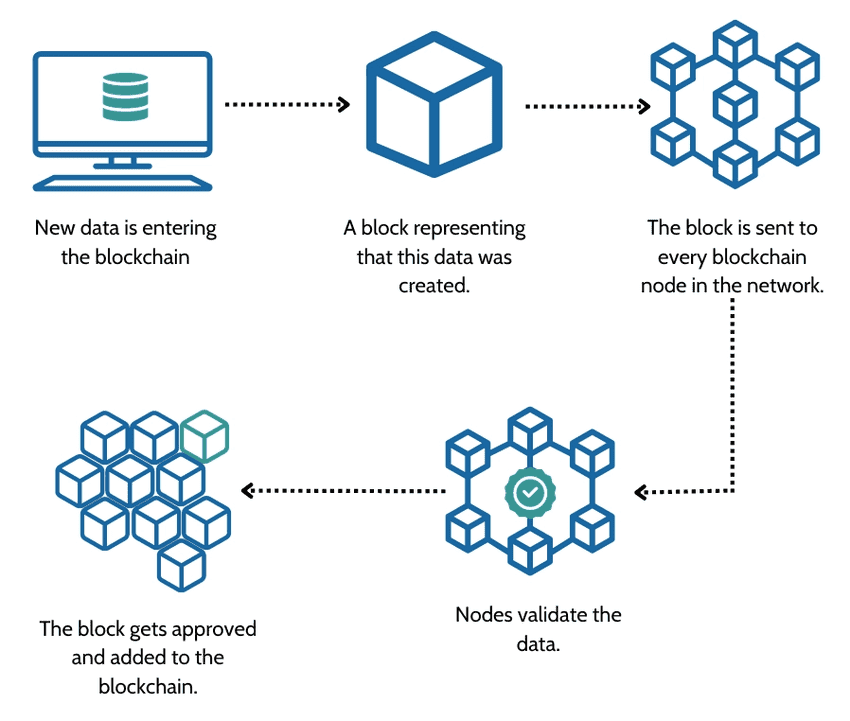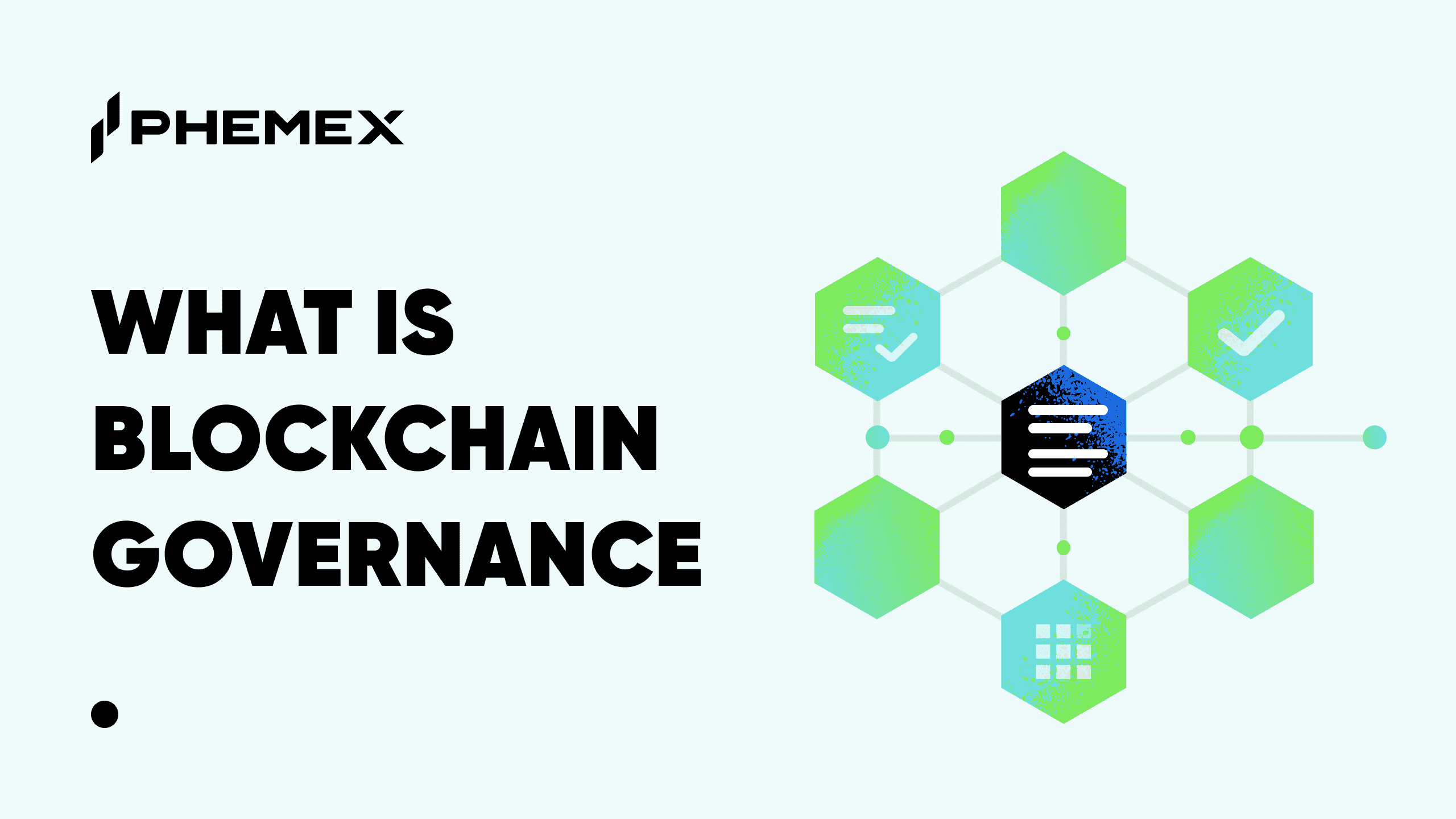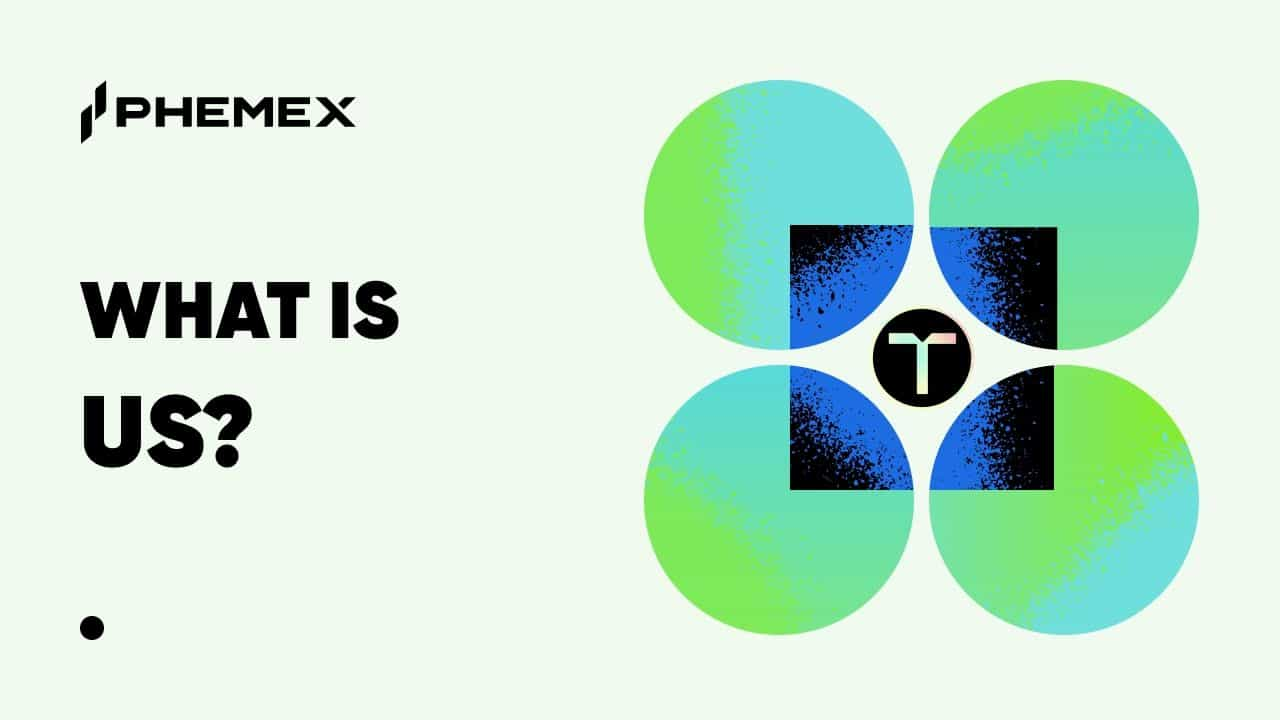
Blockchain networks like Bitcoin, Ethereum, Solana, and others are powered by an underlying infrastructure of nodes. But what are blockchain nodes exactly? In simple terms, a node is any computer that participates in a blockchain network by holding a copy of the distributed ledger and/or helping validate transactions. Nodes form the backbone of blockchain’s decentralization, ensuring the ledger’s integrity, security, and availability. This article provides a clear explanation of blockchain nodes, discusses the different types of crypto nodes (full nodes, light nodes, validators, etc.), explores the roles they play in various blockchains (from Bitcoin’s proof-of-work to Ethereum 2.0’s proof-of-stake and Solana’s high-performance network), and examines emerging trends in 2025 like modular blockchain architecture that are changing how nodes operate.
What Is a Blockchain Node?
A blockchain node is essentially a computer (or device) that connects to a blockchain network. Each node typically stores some or all of the blockchain’s data and communicates with other nodes to share information and verify the ledger’s accuracy. In other words, nodes are the individual participants in the network that enforce the rules and keep the network running.
Key points about nodes:
-
Data Storage: Nodes keep records of transactions. Depending on the type of node, it might store the entire history of the blockchain or just a part of it. For example, a Bitcoin full node contains every transaction since the genesis block (over 400 GB by 2025), while a Bitcoin light node stores only some data (we’ll cover this in types).
-
Networking: Nodes are connected peer-to-peer. They propagate transactions and new blocks to each other. This peer-to-peer network means there’s no central server; nodes talk to multiple other nodes in a web-like fashion. If one node receives a new transaction, it validates it and then passes it along to its peers, who do the same, until it’s spread widely.
-
Verification: Nodes enforce the blockchain’s consensus rules. They check that new transactions and blocks follow the protocol (e.g., signatures are valid, no double spending, block rewards are correct, etc.). Only if a majority of nodes agree that a block is valid is it accepted into the chain. This decentralized validation is what makes blockchains trustless: you don’t have to trust a bank or central party; the network of nodes collectively ensures validity.
-
Security and Immutability: Because nodes store and validate data, an attacker can’t easily tamper with the blockchain. To fake a transaction or alter history, they’d need to compromise a majority of nodes (or their cumulative power), which is extremely difficult in well-distributed networks. If a malicious node broadcasts incorrect data, honest nodes will reject it. Nodes also cross-verify with each other — if one node is out of sync or has been altered, others can identify and isolate it (stop communicating with a “bad” node).
In a sense, nodes are the voters of the blockchain: they vote on what the valid transactions and blocks are, according to the rules. For example, if someone tried to create 100 new bitcoins in a block (breaking Bitcoin’s issuance rules), nodes would reject that block. It doesn’t matter if a miner produced it; if nodes refuse it, it won’t be accepted into the ledger.
Importantly, not all nodes are equal in function — there are various roles nodes can play. Let’s explore those.
What Do Blockchain Nodes Do? (Node Functions)
Blockchain nodes have several key responsibilities:
1. Store the Ledger: Nodes maintain copies of the entire blockchain, ensuring data redundancy and resilience. Even if some nodes go offline, the network can recover from any valid copy.
2. Share Data: Nodes propagate transaction data and blocks to each other. When a transaction is broadcast, it quickly spreads throughout the network, ensuring timely updates.
3. Validate Transactions and Blocks: Each node independently checks new transactions and blocks against blockchain rules, ensuring only valid data is shared and accepted. This decentralized validation enhances security.
4. Prevent Attacks/Fraud: Nodes compare their ledgers to catch fraud attempts. If false data is introduced, honest nodes will recognize inconsistencies and reject it.
5. Decentralized Consensus Participation: Some nodes actively create blocks and contribute to consensus, while others validate transactions and support the longest valid chain.
In summary, nodes maintain copies of the blockchain, communicate updates, and enforce rules to prevent unauthorized changes, leading to a trustless environment. Running your own node allows for personal verification of transactions without reliance on third parties.

Blockchain Node Functionality (source)
Different Types of Blockchain Nodes
Not all nodes do exactly the same things or have the same data. Here are the main types of nodes in blockchain networks and what makes them different:
Full Nodes (Fully Validating Nodes)
A full node stores the entire blockchain history and fully validates all transactions and blocks according to the network’s rules. They serve as referees, holding all data and independently verifying any part of it.
Characteristics of full nodes:
-
Complete Data: They download every block and transaction from the genesis block onward.
-
Verification: Full nodes recalculate the entire blockchain to validate transactions and blocks before considering any data valid.
-
Security: They offer the highest level of security and trustlessness, making them ideal for companies and exchanges wanting direct blockchain access.
-
Resource Intensive: Running a full node requires significant storage, bandwidth, and computational power. For example, by 2025, a Bitcoin full node might need several hundred GB of disk space.
-
Examples: Software like Bitcoin Core or Ethereum clients like Geth enables running full nodes, enhancing network decentralization.
In Bitcoin, full nodes decide which blockchain to follow in hard fork scenarios and enforce consensus by relaying only valid blocks.
Light Nodes (Lightweight or Partial Nodes)
Light nodes, or SPV nodes, do not store the entire blockchain. Instead, they store only essential data to verify transactions.
Characteristics of Light Nodes:
-
Limited Data: They download only block headers rather than full blocks, making them less data-intensive.
-
Verification: Light nodes rely on full nodes to verify transactions through proofs like Merkle proofs.
-
Limited Trust: They assume most of the network follows the rules, making them vulnerable to potential malicious nodes unless connected to multiple full nodes for redundancy.
-
Low Resource Use: Light nodes require far less storage, making them ideal for devices like mobile phones.
-
Examples: Bitcoin SPV wallets (e.g., Electrum) operate in SPV mode. In Ethereum, light clients are emerging but have historically been less utilized.
Pruned nodes, which discard old blockchain data to save space while still fully validating, are another variant of full nodes.
Miner Nodes (Proof-of-Work Nodes)
In proof-of-work (PoW) blockchains like Bitcoin, miner nodes validate transactions and gather them into blocks while solving a cryptographic puzzle to add new blocks to the chain.
Characteristics of Mining Nodes:
-
Full Nodes: Miners are typically full nodes that validate transactions, preventing invalid entries from being included in blocks.
-
Block Creation: Miners collect transactions, form candidate blocks, and attempt to find a nonce that meets the difficulty target, broadcasting successful blocks to the network for verification.
-
Rewards: Miners earn block rewards (new coins) and transaction fees, incentivizing their resource expenditure.
-
Specialization: By 2025, most Bitcoin miners belong to pools and use efficient ASIC hardware, relying on full node servers for blockchain storage.
-
Security: Miners are vital for PoW security, making it costly to alter the blockchain. Honest miners controlling majority hashing power prevent attacks.
Validator Nodes (Proof-of-Stake and Others)
In proof-of-stake (PoS) systems like Ethereum, validator nodes validate and create new blocks by staking cryptocurrency instead of using energy-intensive mining.
Characteristics of Validator Nodes:
-
Staking: Validators must deposit collateral (e.g., 32 ETH in Ethereum) that can be slashed for malicious behavior.
-
Block Proposals and Attestations: Validators are selected to propose blocks, and others attest to their validity, building consensus.
-
Full Node Requirement: Validators run full nodes to participate effectively.
-
Rewards and Penalties: They earn rewards for good behavior but can lose their stake for going offline or acting maliciously.
Overall, validator nodes reduce energy consumption compared to miners while raising considerations around decentralization due to high stake requirements.
Archive Nodes and Specialized Nodes
Beyond the main categories, there are some specialized node types worth mentioning:
-
Archive Nodes: In Ethereum, these are full nodes that maintain historical computational states, required for specific queries like checking account balances from a year ago. They’re storage-heavy and mainly used by block explorers or analytics providers. Most users only need standard full nodes, which prune old state.
-
Masternodes: Found in blockchains like Dash and Horizen, masternodes have special roles, requiring collateral (e.g., 1000 DASH for Dash). They offer additional services like PrivateSend and InstantSend and earn a share of block rewards. They blend functions of full nodes and validators, creating semi-decentralized layers.
-
Supernodes / Listening Nodes: These full nodes are highly available and connect with multiple peers, acting as relays or data hubs for wallets and light nodes. They often have robust infrastructure to maintain open connections.
-
Lightning Network and Layer-2 Nodes: Bitcoin's Lightning nodes facilitate payment channels and route transactions, usually running alongside a full Bitcoin node for monitoring. Other layer-2 solutions have their own node software interacting with the main chain.
-
Validator vs Non-Validator Full Nodes in PoS: In Proof of Stake networks like Ethereum, some full nodes operate without staking, verifying the chain without proposing blocks. This helps maintain decentralization by allowing users to trustlessly verify data independent of validators.

Blockchain Node Types (source)
Roles of Nodes in Different Blockchains
Let’s delve into specifics for a few major blockchains, to see how node types and roles manifest:
Bitcoin Nodes and Miners
-
Bitcoin Full Nodes: These strictly enforce Bitcoin’s consensus rules. As of 2025, running a full node remains the standard for a sovereign user. Full nodes validate blocks; during the 2017 SegWit soft fork, node consensus drove miners to adopt the new rules, illustrating that “nodes, not miners, decide protocol rules.”
-
Bitcoin Miners: Today, mining utilizes specialized ASICs, often organized in mining pools. Individual miners typically connect to pools without running their own nodes, raising centralization concerns. Mining nodes bundle transactions into blocks and rely on network connectivity for swift block propagation to minimize orphaned blocks.
-
Node Count and Distribution: Bitcoin boasts about 19k-24k reachable nodes globally, ensuring decentralization across various countries. This resilience was evident in 2021 when hash power relocated after China banned mining, keeping the network operational.
-
Why Run a Bitcoin Node: Enthusiasts run nodes to verify transactions, while businesses use them for direct blockchain interactions. Now, running a node is accessible, requiring only a modest PC and decent internet, offering high trust at low costs.
Ethereum Nodes and Validators
-
Pre-Merge (Ethereum 1.0) vs Post-Merge (Ethereum 2.0): Before 2022, Ethereum used PoW; by 2025, it transitioned to PoS, where “validators” create blocks. There are execution layer (EL) nodes handling transactions and state, and consensus layer (CL) nodes managing PoS. To fully participate, users generally run both EL and CL nodes.
-
Validators: Ethereum had over 1 million validators by 2025, but many are operated by services, affecting decentralization. Validators work in committees to secure the network, requiring increased bandwidth.
-
Node requirements: Running an Ethereum full (execution) node necessitates significant resources (e.g., SSD, 16GB RAM). Ongoing efforts, like stateless Ethereum, aim to reduce node requirements for long-term sustainability.
-
Different Node Types: Ethereum also includes “light clients,” but their adoption is low. Projects are underway to improve client efficiency and usability.
Solana Nodes (High-Performance, Different Trade-offs)
Solana is a different beast: a high-throughput monolithic blockchain. A few points:
-
Validator Nodes: Utilizing a PoS-like consensus (Tower BFT with PoH), Solana’s validators produce blocks approximately every 400 ms. In early 2025, the number of validators varied from about 1,700 to 800 due to economic factors affecting smaller validators.
-
Hardware Requirements: Validators require significant hardware, including high CPU cores, at least 128 GB of RAM, and high bandwidth. As these requirements increased, many smaller validators became unable to compete, leading to a 68% decline in the validator count from 2023 to 2025, raising concerns about decentralization.
-
Archiver Nodes: Not all validators store the entire transaction history. Archiver nodes manage historical data while validators keep the recent ledger. This helps address data growth issues.
-
Masternode-like aspect: Competitive validators typically need a substantial stake delegated to cover operational costs, resulting in consolidation toward larger validators, making it harder for casual hobbyists to participate.
-
RPC Nodes: Separate from consensus validators, RPC nodes handle user queries. Many validators disable heavy RPC tasks on their nodes to focus on block production.
-
Emerging Solutions: The Solana community is exploring ways to lower costs and incentivize smaller validators through adjusted rewards and decentralized staking mechanisms.
Other Networks
-
Polkadot: Features a Relay Chain with validators and parachains to distribute load and maintain a higher number of validators.
-
BSC / Tron / etc.: These networks use a centralized model with a limited number of validators for performance, relying on a small, rotating set.
-
Casper, Algorand, etc.: Many newer L1s use PoS models with different node structures, often integrating roles for enhanced processing efficiency.
-
Sharding & Layer2: Ethereum’s sharding and Celestia’s designs introduce roles that allow nodes to handle only subsets of data, improving performance and scalability.
Each blockchain network presents unique challenges and trade-offs related to decentralization and performance.

Blockchain Structure (source)
Node Operation in 2025: Trends and Considerations
Running a node in 2025 features both familiar elements and new developments:
Ease of Use Improvements: Advances in hardware and software, such as plug-and-play devices like Umbrel and DAppNode, make it easier to run nodes. Home staking on Ethereum is possible with mini PCs or Raspberry Pis. This trend promotes decentralization.
Increasing Resource Needs vs Moore’s Law: While blockchains are growing, hardware improves too. By 2025, typical consumer hardware can still support full nodes for Bitcoin and Ethereum, but newer, high TPS chains may require more robust solutions. Innovations like pruning and state rent aim to keep node operation feasible.
Privacy and Self-Sovereignty: More users are acknowledging the importance of running their own nodes to maintain privacy. By 2025, wallets like MetaMask will allow users to set custom RPCs, ensuring local queries. Lightweight client techniques, such as Bitcoin’s Neutrino, facilitate this balance.
Economic Incentives to Run Nodes: Many networks only reward validators, leading to reduced motivation for running non-mining full nodes. Some initiatives are exploring incentives for full nodes to promote decentralization, while community education highlights their importance.
Professionalization and Cloud Reliance: The trend of hosting nodes in data centers raises concerns about centralization. Events like Infura outages illustrate the risks of relying on centralized services. By 2025, there will be a push for more decentralized node deployments and alternatives like Pocket Network to distribute load.
Regulatory Environment: Running a node is generally legal, although some governments may view it unfavorably. The main concern lies in regulatory compliance for validators, especially in PoS networks, highlighted by the debate around censorship post-Tornado Cash sanctions. Ensuring neutrality among validators remains a key governance challenge.
Conclusion
Blockchain nodes are essential for the characteristics of cryptocurrencies such as decentralization, security, and trustlessness. They come in various forms: full nodes that verify every transaction, light nodes for mobile access, and miner/validator nodes that produce blocks. Each type helps balance the blockchain trilemma of decentralization, security, and scalability.
In Bitcoin, running a full node is a user’s right and vital for network health. As of 2025, the Bitcoin node ecosystem remains strong, with improved tools for users. In Ethereum, nodes manage not just balances but smart contracts, driving innovations in client software. The transition to proof-of-stake has expanded participation while emphasizing the importance of non-validating full nodes for decentralization.
Newer high-performance chains like Solana highlight the challenge of maintaining decentralization as speed increases. Modular blockchains might allow users to run specific parts of a network, making node operation more accessible.
For crypto users in 2025, consider running your own node. Bitcoin users can increase security with a full node, while Ethereum users can utilize clients or services like Infura’s “offline” mode. Even if you can’t run a node 24/7, choose wallets that prioritize security over centralization.
Ultimately, nodes underpin the true nature of blockchains, ensuring no single entity controls the system and allowing independent verification. A diverse array of nodes strengthens networks. Understanding and potentially operating a node empowers users to engage with this transformative technology. In essence, nodes are the lifeblood of blockchain networks, enabling secure transactions and decentralized applications.






